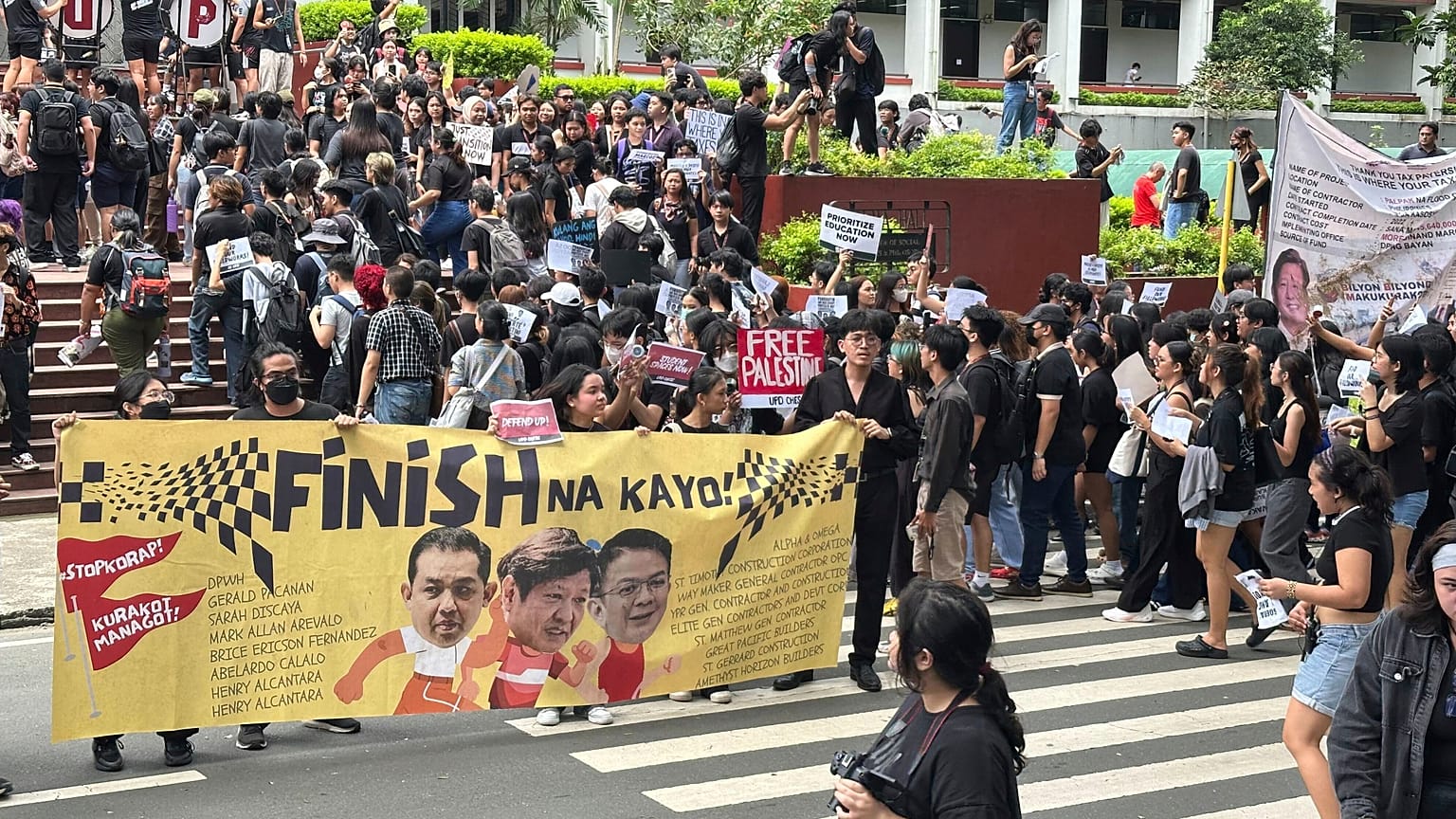University of the Philippines Students Protest Budget Cuts
Thousands of University of the Philippines students staged a mass walkout on September 12, 2025, protesting government budget cuts, alleged corruption, and delayed infrastructure projects.

Thousands of students from the University of the Philippines (UP) walked out of classes and gathered in front of Palma Hall in Diliman, Quezon City on Friday, September 12, 2025, in a large-scale protest against government budget cuts and alleged corruption. The demonstration, dubbed the "Black Friday walkout," was joined by faculty members, youth groups, and activist organizations, reflecting widespread concern over the impact of reduced funding on public education and infrastructure[5][4].
The protest was triggered by recent revelations during televised congressional inquiries, where two senators were accused of receiving kickbacks linked to flood-control projects. Construction executives testified in a separate Senate hearing that they were asked for payments amounting to a quarter of project costs in exchange for government contracts. These allegations have led to the resignation of the public works secretary and prompted President Ferdinand Marcos Jr. to announce the formation of an independent commission of inquiry[2][3].
Protest Highlights and Demands
Participants denounced the budget cuts, which they argue threaten the quality and accessibility of education at UP and other state universities. Protesters also called for greater transparency and accountability from the Marcos administration, demanding that funds be restored and that those implicated in corruption face prosecution. Faculty members expressed concern that delayed infrastructure projects would further hamper academic activities and campus safety[2][5].
The Chancellor of UP Diliman publicly endorsed the protest, emphasizing the university's commitment to academic freedom and civic engagement. Student leaders stated that the walkout was not only about education funding but also a broader call to address systemic corruption and governance failures[6].
Political Fallout and Broader Impact
The scandal surrounding flood-control projects has had immediate political consequences, including the suspension of funding for such projects in the coming year. Church leaders, former officials, and business groups have issued joint statements condemning the corruption and warning of its impact on a country regularly struck by deadly storms. The protests have drawn attention from international media, highlighting the intersection of education, governance, and disaster preparedness in the Philippines[2][3].
While the government has promised an independent investigation, student and faculty groups remain skeptical, vowing to continue their advocacy until concrete reforms are enacted. The events of September 12 mark one of the largest student mobilizations in recent years, underscoring the critical role of youth activism in Philippine politics.